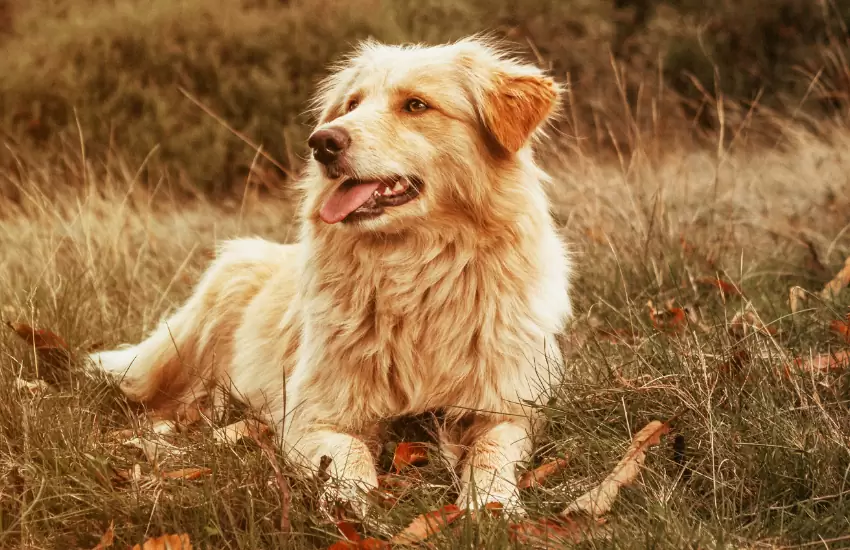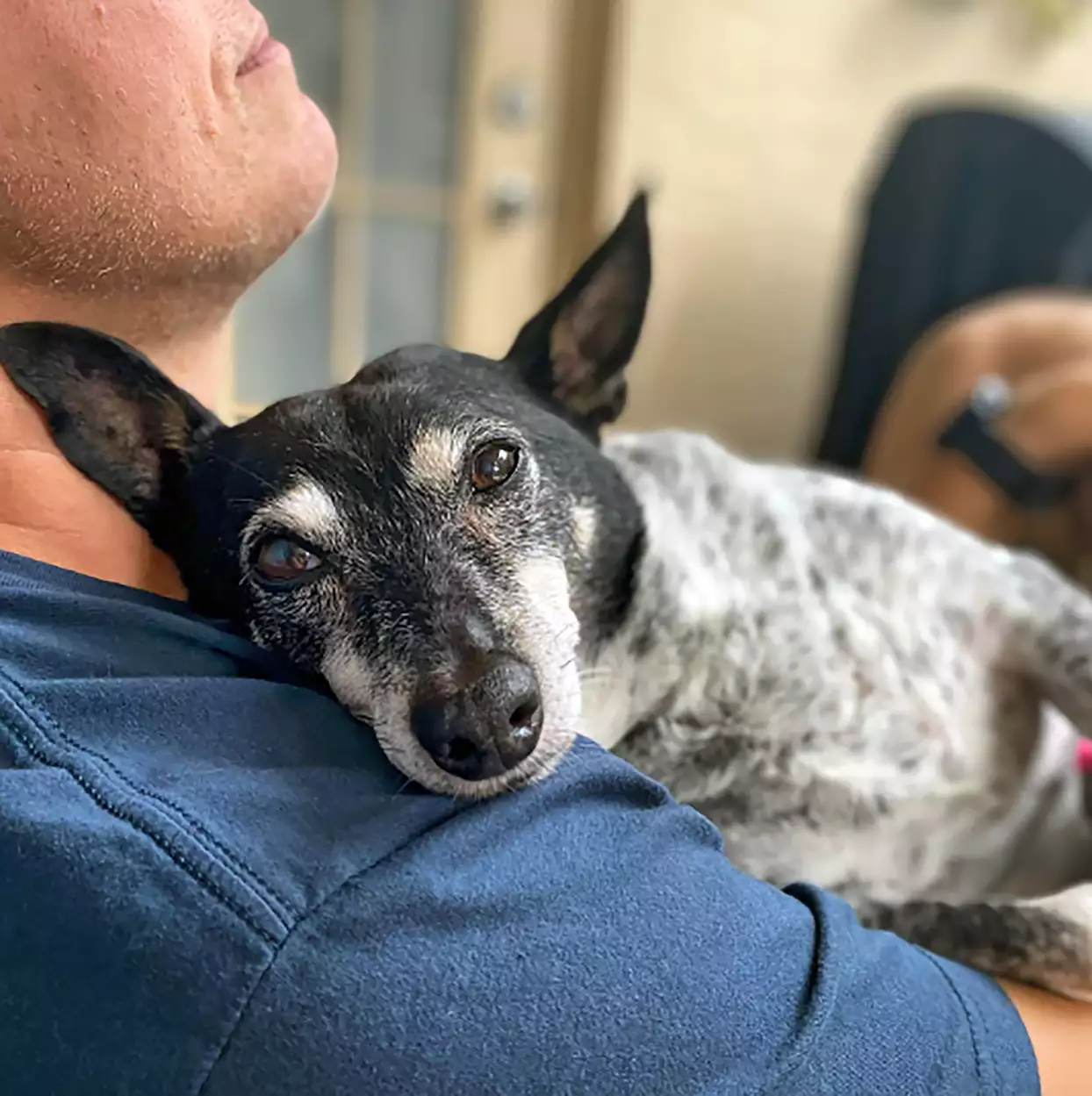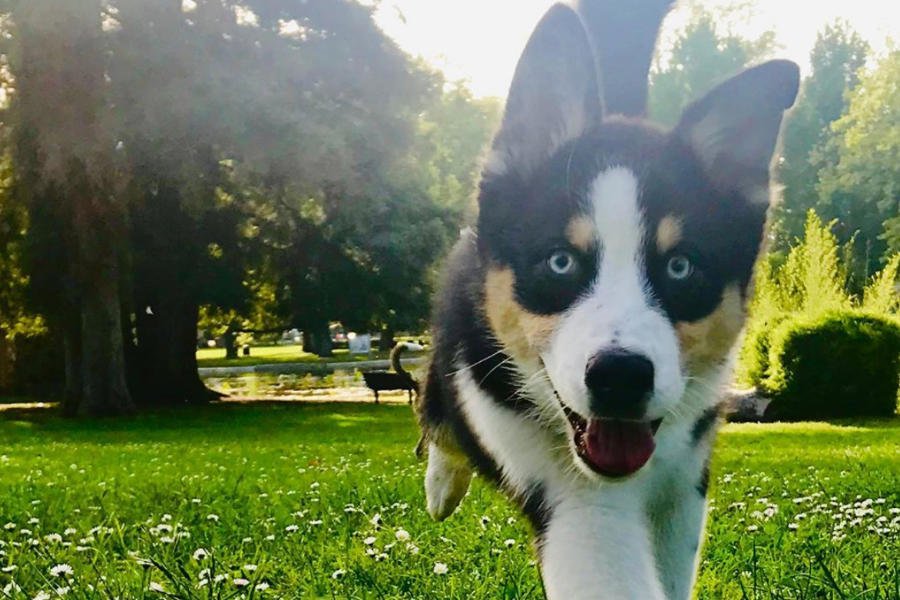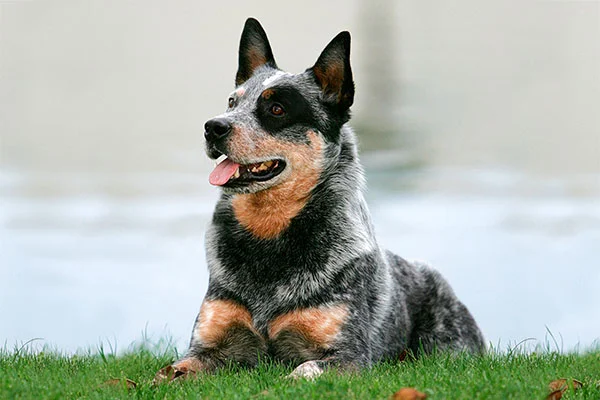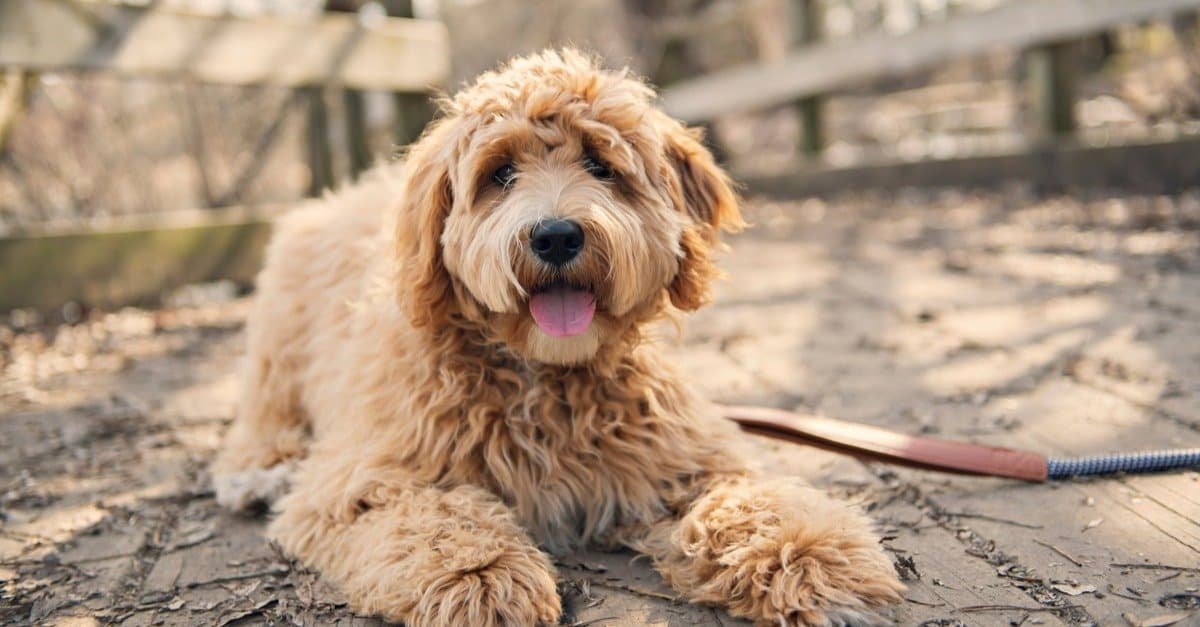Japanese Spitz: Dog Breed Origin, Characteristics & Care

Japanese Spitzes are small dog breed with a long history. They are mainly known for their small size. These dogs were developed to hunt small game. They have eyes that are wide open, alert eyes, small ears, and a round muzzle with soft lips. The coat of the Japanese Spitz is long, tight to the body, and straight. They have a kinked tail and floppy ears that can be folded forward at the tip or left hanging loosely by their side. Japanese Spitzes are energetic dogs that need plenty of daily exercise to stay healthy, happy, and strong.
If you’re looking to adopt one of these mischievous little dogs, make sure you’re ready for all of the fun they bring into your life! In this blog post, we’ll discuss about what makes Japanese Spitz unique and interesting dogs to keep in homes and how to care for them.
Introduction Of Japanese Spitz
Japanese spitzes are a small, compact dog breed that originated in Japan. They have long, silky hair and can have black, white, or brown coat colors. Japanese spitzes are known for their gentle and loving nature. These dogs are very active dogs and require plenty of exercise. They enjoy playing outdoors, but are also happy to spend time indoors with their owners.
Japanese spitzes do well in homes with children, adults, and other pets. They need to be groomed regularly and their coat should be brushed regularly to keep it looking healthy and vibrant. These dogs are great for those who enjoy the company of small dogs but want a breed that is lively and energetic.
The heart of a huge watchdog lives in the Japanese Spitz, a tiny family friend. Japanese Spitzes are descended from their own lineages and originate from Japan, as one might expect. They look similar to American Eskimo Dogs, white Pomeranians, and little Samoyeds. This breed is accepted by many kennel clubs around the world, despite the fact that the American Kennel Club does not recognize it.
History of the Japanese Spitz
The Japanese spitz is a breed of dog that originated in Japan. The Japanese Spitz is a relatively new breed that was developed in Japan in the 1920s. The breed was created by crossing the German Spitz with the American Eskimo Dog and the Samoyed. The resulting breed was then crossed with the Pomeranian to create the Japanese Spitz as we know it today.
Appearance of Japanese Spitz
The Japanese spitz dog is a small breed that has a lifespan of 12 to 15 years. This dog is known for its intelligence and playfulness. It’s a hypoallergenic dog that is perfect for people with allergies. The spitz coat doesn’t require much grooming, making it easy to maintain. The spitz coat protects well against the elements and provides good warmth.
The dog has a white coat with black patches on its body and legs. Its coat comes in different lengths, from long to short hair varieties. It has a small, rounded muzzle and small eyes that are usually brown in color. The spitz is built compactly, weighing between 5 and 9 pounds as adults.
The spitz needs little grooming, but it’s prone to some dog diseases such as hip dysplasia, seizures, and blindness. So the dog should be groomed regularly to prevent hair-matting and skin infections
The japanese spitz is an ideal breed for apartment living or houses with large yards due to its small size. As with any dog, japanese spitzs need moderate exercise to keep them healthy and happy. They are also great companions for people who love dogs and enjoy playing games with them.
Character & Temperament of Japanese Spitz
Japanese Spitz are lively, playful dogs that are known for their sense of humor. They make great family pets and are obedient and loving animals. They need a lot of exercise and should be kept on a leash when outdoors. Japanese Spitz are prone to some health issues, including hip dysplasia and epilepsy, but they are relatively healthy overall. They require regular grooming, including a bath and haircut.
Adaptability
Japanese Spitz are gentle dogs that are known for their adaptability. They make excellent family pets and are known for their playful personalities. They are also good candidates for dog parks, as they are typically good with other dogs. They do require some basic training, but they are relatively easy to housetrain.
Physical Needs
Japanese Spitz dogs are known for their gentle and loving personalities. They are also very active and require a lot of exercise. Japanese Spitz dogs are good with people, but they can be aggressive towards cats. They are not good with cats as they may attack them. This breed is an excellent choice for people who have allergies or who want a dog that is friendly and easy to care for. These dogs make great companions and are a breed worth considering if you are looking for a dog that is compassionate, loving, and sociable.
All Around Friendliness
Japanese spitz dogs are affectionate and playful companions who are intelligent and easy to train. They make excellent candidates for obedience training, as they are responsive to commands and respond well to positive reinforcement. These dogs are also well-suited for families with children, as they are gentle and loyal companions. Japanese spitz dogs are known for their strong guarding instincts, so it is important to socialize them from a young age to prevent them from becoming aggressive. Overall, Japanese spitz dogs make excellent companion dogs that are loyal, gentle, and playful.
Grooming of Japanese Spitz
Japanese spitz dogs require regular grooming to keep them looking their best. Their hair is dense and long, making it necessary to brush it daily to prevent tangles and knots from developing. They also need to be bathed regularly, preferably once a week to remove dirt, dust, and allergens. This will help keep their coats healthy and clean. It’s important to groom your spitz dog when it is growing out of its puppy stage and into its adult coat. This helps keep the hair clean and disease-free. Proper grooming can also help prevent hair loss and aid in overall health and well-being. Japanese spitz dogs need to be exercised daily, preferably in a large yard with plenty of obstacles for them to play around. This helps keep their minds and bodies healthy and happy.
Training of Japanese Spitz
Japanese spitz dogs are very intelligent dogs that need a lot of training. They must be socialized from a young age to other animals and people so they can become comfortable with other cultures and environments. These pups require plenty of exercise both indoors and outdoors to stay healthy and happy.
Japanese spitz dogs are prone to some health problems, including hip dysplasia and diabetes, so it is important to take measures to prevent these issues. These dogs require periodic grooming, including regular brushing and bathing, to keep their coat healthy and clean. In summary, Japanese spitz dogs are fun, loving dogs that make great companions for any family.
Exercise of Japanese Spitz
– Japanese Spitzes are high-energy dogs that need regular exercise.
– They love to play fetch and run around outdoors.
– Japanese Spitzes are good with other dogs and cats, but may be hesitant with other small animals.
– Japanese Spitzes need a lot of grooming, including regular brushing and bathing.
– Japanese spitzes require extensive training from a young age in order to properly socialize them.
– They’re intelligent dogs that need to be taught how to walk on a leash, sit, and bark commands.
– If you’re looking for a dog that loves to play, loves to run, and loves to swim, consider a spitz.
Common Health Problems of Japanese Spitz
Japanese Spitz dogs are prone to various health problems, including:
– Eye problems, such as corneal ulcers and cataracts
– Ear infections
– Gastric torsion
– Hip dysplasia
-Preexisting conditions that may make Japanese Spitz predisposed to health problems, such as allergies or hypothyroidism. It is important to keep your Japanese Spitz healthy by providing them with the care described above. This will help prevent them from developing these health issues and ensure long, healthy lives.
Diet and Nutrition of Japanese Spitz
To keep a healthy Japanese Spitz dog in good condition, it is essential to provide it with a balanced diet. The dog breed requires high-quality proteins such as meat, chicken, and fish to provide the body with necessary nutrients for growth. It also needs healthy fats such as sunflower oil and canola oil to aid in maintaining a healthy skin and coat.
Vitamins and minerals should be provided by providing kibble with vitamins A and D, as well as minerals such as calcium, phosphorous, and phosphorus. Besides, you must also provide it with carbohydrates from vegetables such as carrots and green beans. However, dog breed must have a diet that is low in sugar.
Oral Health Care of Japanese Spitz
The dog breed must have its teeth cleaned professionally at least once a year to ensure that the teeth are kept in optimal health and condition. Besides, you must groom it regularly to keep its hair clean and healthy.
Japanese Spitz dogs must be socialized to develop good social skills so that they can easily adapt to different environments.
You must ensure that your dog gets enough daily exercise to stay healthy and fit.
Where to Adopt or Buy a Japanese Spitz
Japanese spitzes are loving and playful dogs that make great family pets. They are high-energy dogs that need plenty of exercise. Japanese spitzes need to be groomed regularly to prevent tangles and mats. Japanese spitzes require a large amount of food, so it is important to feed them a balanced diet. Japanese spitzes are prone to hip dysplasia, so it is important to have their hips examined by a veterinarian regularly.
Japanese Spitz Pros & Cons
The Japanese Spitz is known for its intelligence, trainability, and gentle nature. They can be difficult to housebreak and require a lot of exercise. They are prone to hip dysplasia and other health issues. Due to their small size, they make great family dogs but may not be ideal for people with small children or pets due to their high energy levels. They are relatively expensive to buy and maintain, so it is important to do your research before making a purchase. Overall, the Japanese Spitz is an excellent dog breed with many benefits and drawbacks. You should consider both before making a decision about adopting one as your family pet.
Japanese Spitz Breed Conclusion
Japanese spitzes are one of the most intelligent dog breeds. These dogs love to be around people, and they are gentle and affectionate with their families. This breed requires regular exercise, as too much activity can cause them to become hyper or anxious. They need to be groomed regularly, and their nails should be trimmed. Japanese spitzes shouldn’t be left alone for too long, as they can get bored. They need to eat a high-quality diet that includes fresh vegetables and fruits, as this is important for their healthy development.Overall, Japanese spitzes are wonderful dogs who are great companions. They require regular care and grooming to keep them happy and healthy.
Frequently Asked Questions
How much does a japanese spitz cost
The average cost of a Japanese spitz is around $1,000. This price tag may vary depending on the breeder, location, and age of the dog. Japanese spitzes are typically seen as house pets and are not typically used for breeding. They require plenty of exercise, which is why they should be kept on a leash when outside. Japanese spitzes are prone to some health problems, including hip dysplasia and diabetes.
What is the average lifespan of a Japanese Spitz?
The average lifespan of a Japanese Spitz is usually 10-12 years, although this can vary depending on the dog’s health and behavior. Japanese spitz dogs are usually healthy and easy to take care of, requiring only a high-quality diet, plenty of exercise, and regular grooming. Additionally, they may also enjoy playing with other dogs and snuggling up with their owners during nights.
Are Japanese Spitz good with children?
Yes, Japanese Spitz are generally good with children. However, they may have some behavioral quirks that parents should be aware of. These behaviors can include chewing on things, jumping up, and being overly playful.
It is important to provide enough exercise and toys for Japanese Spitz when they are around children. Additionally, Japanese Spitz should be socialized from a young age to avoid any behavioral issues.
How much do Japanese Spitz shed?
Japanese Spitz sheds a moderate amount of hair. They will require a weekly bath and some grooming, but other than that they are low maintenance dogs.
What is the best way to groom a Japanese Spitz?
Grooming a Japanese spitz can be a little bit tricky, but with a little bit of practice, it will eventually become a breeze. Here are the main grooming pointers you should adhere to:
– Japanese spitzes typically groomed twice a week – once during the morning and once in the evening.
– Japanese spitzes need to be brushed every day to prevent tangles and mats.
– Japanese spitzes should be bathed only when they become dirty or when their coat starts to shed excessively.
– Japanese spitzes should not be left outdoors without shelter during inclement weather.
Do Japanese Spitz bark a lot?
Japanese Spitz bark less than most dog breeds. They are considered one of the best dog breeds for bark control because they are typically good with other pets and children. Japanese Spitz also need to be exercised regularly so that they don’t develop destructive habits. They should have a lot of toys to play with to keep them busy and entertained.
Are Japanese Spitz easy to train?
Japanese spitzes are usually easy to train, but they may be difficult to housetrain if they were raised in a kennel environment.
What is the difference between Japanese Spitz and Chinese Shar-Pei?
Japanese Spitz and Chinese Shar-Pei are both spitz dog breeds characterized by their large size, floppy ears, and wagged tails. They both require a lot of exercise, but Japanese Spitz are typically better at being indoor dogs.
Japanese Spitz and Chinese Shar-Pei can be mixed together, but it is generally recommended to keep the two separate in order to maintain their distinct characteristics.
Is the Japanese Spitz rare and endangered or not?
At the moment, the Japanese Spitz is not considered to be either rare or endangered. However, their population may be dwindling due to breeders who are not spaying and neutering their dogs as often as they should, which in turn is leading to a decrease in the dog’s overall numbers.
The Japanese Spitz is a member of the Toy Fox Terrier family and is known for its white coat, black muzzle, and erect ears. They are also athletic and playful, making them good dogs for families who enjoy hiking and snowboarding.
Are Japanese Spitz well behaved?
Japanese Spitz are usually gentle dogs and they enjoy being around people and other animals. However, if they feel threatened, they can become aggressive with other dogs. In addition, Japanese Spitz should be exercised regularly so that they don’t get bored and develop destructive behaviors. They also need plenty of chew toys to keep them amused.
Panese Spitz are typically good natured dogs that are gentle with people and other animals. They make great family pets. Japanese Spitz need to be provided with a high quality food that is tailored to their specific diet in order to maintain their healthy coat and temperament.
Is it proper to interbreed Japanese spitz and pitbull?
There is no definitive answer to this question as it depends on the individual dog and their breeding history. Some people believe that interbreeding Japanese spitz and pitbulls can result in a hybrid breed that is more aggressive and difficult to train. If you are considering breeding your Japanese spitz or pitbull, it is best to consult with a reputable breeder who can help you understand their specific breeding history.
It is generally not a good idea to interbreed Japanese spitz and pitbull. Japanese spitz and pitbull are two different breeds of dogs, and attempting to cross them will likely result in negative consequences for both dogs. Japanese spitz and pitbull are both intelligent dogs, but mixing them will likely result in some sort of behavioral issue.
